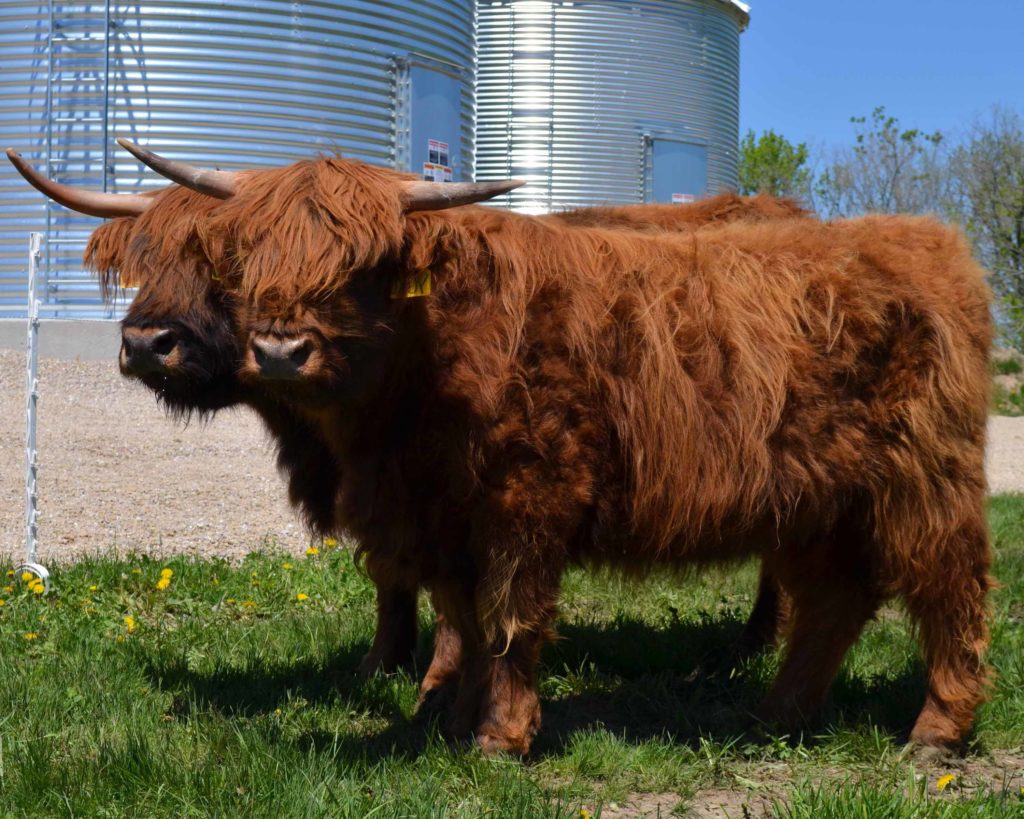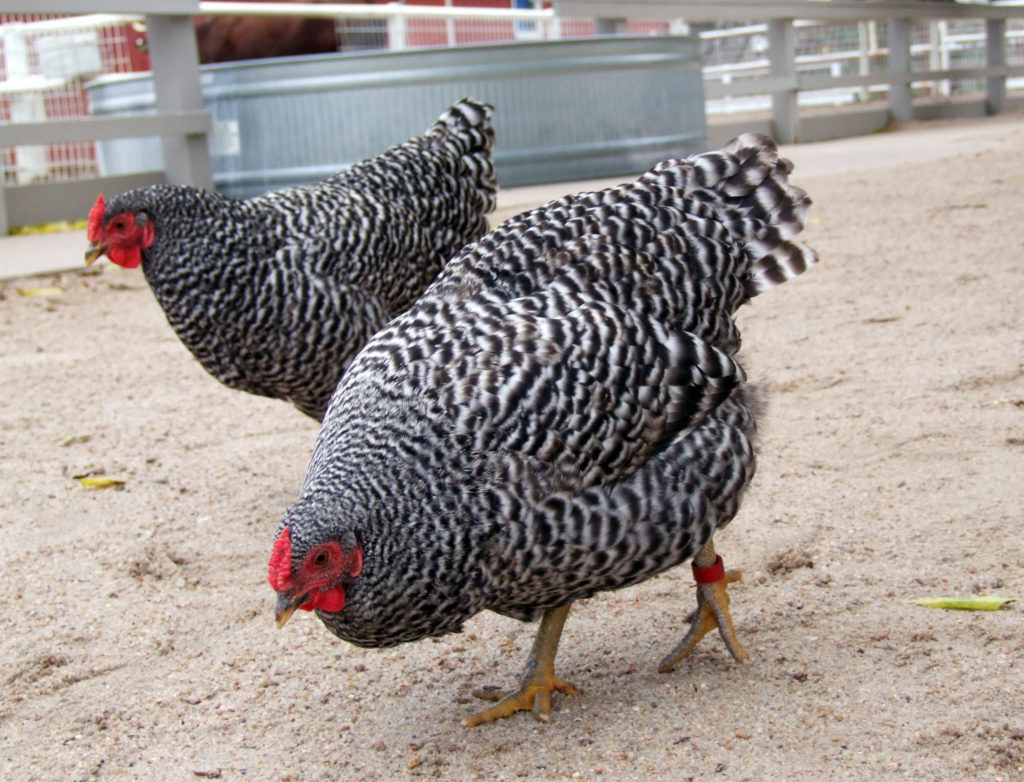Why you might want heritage breeds for your homestead

If you were to visit a large commercial farm, you might leave under the impression that all chickens, cows and pigs look exactly the same. But livestock isn’t limited to those familiar breeds. In fact, heritage breeds represent a glimpse into the rich diversity — and history — of farm animals.
“Heritage breeds are historic breeds that are more closely that more closely resemble the livestock and poultry that we have raised throughout history,” says Ryan Walker, communications manager at the Livestock Conservancy, a non-profit organization dedicated to protecting threatened and endangered livestock breeds based in Pittsboro, North Carolina. “Heritage breeds come in all sorts of colors and shapes and sizes. The diversity is appealing to a lot of people.”
Heritage breeds can be a great choice for small farms and homesteaders, but they come with some costs. Here is what you need to know about heritage breeds and why you might want to add them to your homestead.
The advantages and challenges of heritage breeds
Heritage breeds can be especially advantageous for small farms and homesteads. Commercial livestock has been carefully bred to be fast-growing and meaty, often at the expense of instincts like mothering and natural mating.
Heritage breeds tend to be more independent and resilient than their commercial counterparts. According to Walker, heritage breeds retain more of the characteristics of their wild ancestors, which can be advantageous for homesteaders. Because the breeds adapted to a time before commercial farming, they are more likely to graze freely. Heritage breeds are more likely to retain their maternal or brooding instinct. Also, their “temperament can be preferable to small farmers,” Walker says.
If you are raising animals for meat, heritage breeds also taste better.
“One of the biggest reasons we chose to raise heritage breeds is the quality of the meat,” says Wesley Hunter, owner of Providence Farm in Seymour, Missouri. Hunter raises a number of heritage breed poultry, including ducks, turkeys, geese and guinea fowl. “It is more flavorful with a better texture.”
Heritage breeds also tend to have fewer health issues than commercial breeds. With respect to chickens, Hunter says that “because they’re slower growing, and they have what should be a normal body phenotype, they are not subject to the health problems that the faster-growing hybrid meat chickens are.”
The same goes for other kinds of livestock. “The main reason that I’ve always been attracted to them is because they are very hearty,” Deborah Niemann, homesteader and blogger at The Thrifty Homesteader based in Cornell, Illinois who keeps several heritage species, including pigs and turkeys.
While commercial livestock is generally bred for a single purpose, heritage breeds can have multiple uses. Heritage chickens, for example, can be used for both meat and eggs, while their commercial counterparts are usually bred for one use or the other.
Because some heritage breeds are threatened or endangered, adding them to your homestead could be benefiting biodiversity and conservation. This also comes with a caveat: Walker recommends that inexperienced farmers choose animals that are not too endangered because if the population were to die off at the hands of an inexperienced farmer, it can threaten the species as a whole.
One of the primary challenges of choosing to raise heritage breeds is the extra cost of acquiring and rearing them. They can be more expensive than their commercial counterparts, and because they live longer, they also require more feed.
“For one, they’re rare. Rarity adds to the cost for some of them,” Walker says. “Because they generally take longer to grow, that will take time, so you have to pay more for feed and care.”
The extended living times can also make them more vulnerable to predation. “Because they are slower growing, it can cause problems with predation,” Hunter says. “When they’re out in pasture that much longer, it’s that much more chance for predation.”
Caring for sick or injured heritage breeds can also be an added challenge. “The biggest thing is vet care,” Niemann says. “Vets don’t usually know what to do with them because their experience is usually with commercial operations.” But, Niemann adds, when compared to commercial breeds, heritage breeds “hardly ever get sick.”
How to choose a heritage breed

Most experts agree that chickens are a great starter animal for small farms or homesteads looking for their first heritage breed.
“I’d probably have to say chickens are the easiest. We often call them the gateway animal,” Walker says. “Compared to the other species, chickens are relatively cheap to obtain, and there is not a lot of infrastructure besides coop and basic fencing.”
Walker recommends Buckeye chickens, which he says are easy to raise and well-adapted to a wide variety of climates; Dominique, Java and Delaware are all also relatively easy to find, he says. Hunter also recommends the Barred Plymouth Rock and White Plymouth Rock chickens, which are prolific layers.
In terms of larger livestock, Walker says sheep and goats are generally easier than cows and pigs — plus, there is the potential added benefit of being able to profit from selling heritage wool.
Niemann raised Shetland sheep for 12 years for their colorful wool, which naturally comes in a wide range of colors. She says that though the commercial wool industry generally considers colored wool “worthless” because it cannot be dyed like white wool, artisans and spinners value the range in color and textures and will pay a premium for the product. Niemann is working with the Livestock Conservancy to launch the Shave ‘Em to Save ‘Em campaign to connect fiber artists and heritage breeders.
Where to buy a heritage breed
For poultry, most hatcheries or feed stores will have some heritage breeds available. For larger animals or rarer breeds, the Livestock Conservancy has an online directory of breeders so you can search for the breeders that specialize in the animal you are looking for.
Heritage breeds are a great fit for many farms and homesteads. While you are out shopping for your quirky, interesting and potentially rare livestock, Walker simply cautions that you start slowly.
“The main thing is going to be is making sure you don’t get in too quickly,” he says. “It is a really exciting thing when you get animals, but because these breeds are rare, we don’t want to see somebody who gets a lot of animals gets in over their head.”

While I have nothing against “heritage breeds,” I do have a problem with inaccurate and false articles. This article states the heritage breeds have better maternal instincts and abilities to graze freely, traits that have been bred out of commercial type cattle. In regards to cattle specifically this couldn’t be more untrue. Has the author of this article ever been on a remote commercial cattle ranch? What this person states is rather insulting. I can promise that if any cow on any operation doesn’t mother her calf then she goes down the road. I encourage you to take a tour of some of the desolate ranches that these so called “commercial” breeds survive on, and then tell me they’ve lost all their instinct to mother and forage for feed. The word heritage itself is just another made up marketing gimmick. Angus cattle specifically date well past the 16th century, older than a lot of the breeds that are labeled as heritage. If someone is interested in breeds that are lesser known and wishes to promote them, I feel like it could be done in a much more professional and educated manner. All this article really proves is how uneducated back yard people truly are. What an insult to so many more common breeds that pride themselves on mothering abilities, milking ability, survivability, hardiness etc. to make a blanket statement that all these positive traits have been bred out.